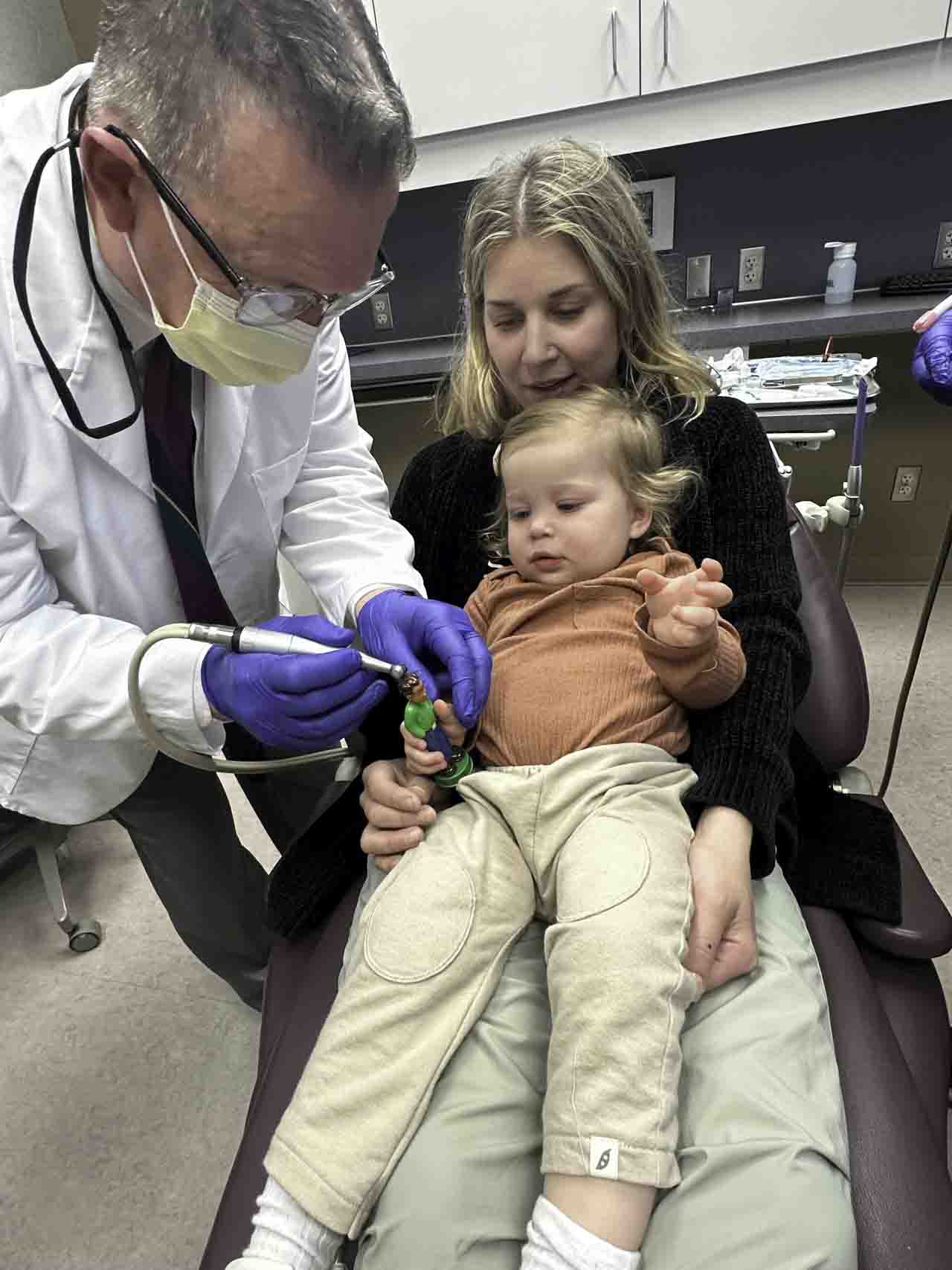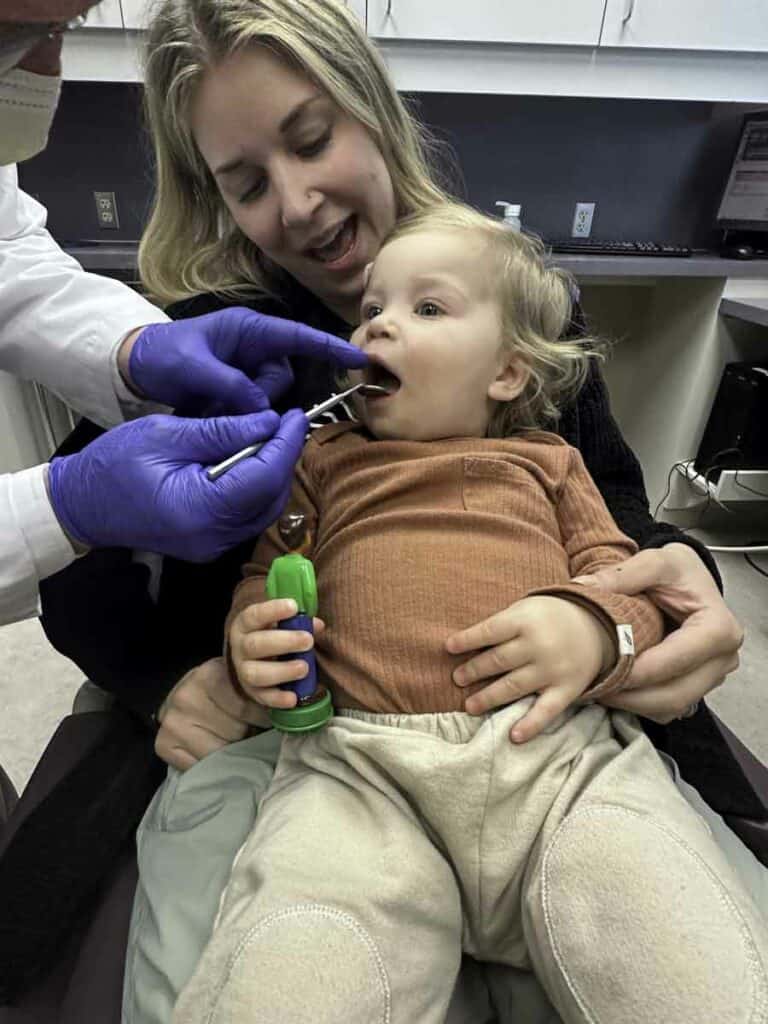
Your baby just got their first tooth and it’s a big deal! It’s a rite of passage and they’re growing up. And honestly, it’s so cute! But you want to make sure they keep those baby teeth and you want the best possible care for your baby! So, you start wondering … When should I take them to the dentist for their first visit?
Your child’s first visit to the dentist should happen before his or her first birthday. The general rule is six months after eruption of the first tooth. Taking your child to the dentist at a young age is the best way to prevent problems such as tooth decay and can help parents learn how to clean and care for their child’s teeth properly. Bringing your child to the dentist early leads to a lifetime of good habits and acclimates your child to the dental office, thereby reducing anxiety and fear, which will make for more stress-free visits in the future.
Before the visit, it’s fun to make it seem as if they’re going on an adventure. Kids can be unpredictable, so plan a course of action for whatever reaction your child may exhibit. This is a new environment, and they may be fussy or not sit still. We understand! Talk to your child about what to expect and build excitement as well as understanding about the upcoming visit.

A child’s first visit to Peak Dental will be more of just an introduction to the office, the dentist, and the tools used. We introduce them to Mr. Thirsty (the suction), Super soaker (the water) and Mr. Bumpy (the handpiece). They get to sit in the big chair and see how it moves. We like to keep the first visit as fun as possible. Their first few visits will be a chance to get your child comfortable with the process and the dental office. If the child is amenable, Dr. Kapp will do an exam of your child’s teeth. He may ask the parent to sit in the dental chair and hold their child during the exam. During the exam, he will check your child’s teeth for decay, examine their bite, and look for any potential issues with their gums, jaw and oral tissues and assess the need for fluoride. Dr. Kapp will also demonstrate proper home cleaning techniques, discuss any dental developmental issues and answer your questions. The first visit often lasts between 15 and 30 minutes.
Children, like adults, should see the dentist every six months. Regular visits help build up your child’s comfort and confidence in visiting the dentist. It also gives the dentist plenty of time to monitor the development of their teeth and promptly treat any potential problems.
Parents typically provide oral hygiene care until the child is old enough to take personal responsibility for the daily routine of brushing and flossing.